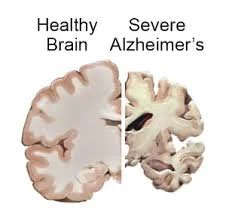Understanding Alzheimer's Disease
What is Alzheimer's disease?
Alzheimer's disease is a chronic, progressive, neurodegenerative disorder that affects millions of people worldwide. It is the most common cause of dementia, leading to a decline in cognitive function, memory loss, and changes in behavior. It typically affects older adults, with symptoms gradually worsening over time. While the exact cause of Alzheimer's is not fully understood, it involves the deterioration of brain cells and the connections between them.
Symptoms of Alzheimer's Disease
The symptoms of Alzheimer's disease can vary, but they generally progress through three stages: early, middle, and late.
Early Stage:
Memory Loss: Recent events or conversations.
Disorientation: Confusion about time and place.
Difficulty with Familiar Tasks: Trouble completing everyday activities.
Language Problems: Struggling to find the right words or follow conversations.
Misplacing Items: Frequently losing things and being unable to retrace steps.
Middle Stage:
Increased Memory Loss: Significant forgetfulness, ex: personal history.
Confusion: Greater disorientation and confusion about events, dates, and locations.
Mood and Behavior Changes: Irritability, aggression, and withdrawal from social activities.
Sleep Disturbances: Difficulty sleeping or changes in sleep patterns.
Wandering: Tendency to wander and get lost.
Late Stage:
Severe Memory Loss: Inability to recognize family and close friends.
Loss of Physical Abilities: Difficulty walking, sitting, and eventually swallowing.
Incontinence: Loss of bladder and bowel control.
Communication Issues: Inability to speak or understand language.
Complete Dependence: Needing full-time assistance with daily activities.
Diagnosis of Alzheimer's Disease
Diagnosing Alzheimer's involves a comprehensive evaluation to rule out other conditions and confirm the presence of the disease.
Medical History and Physical Exam: Assessment of overall health, medical history, and symptoms.
Neurological Exam: Evaluation of reflexes, coordination, muscle tone, and strength.
Cognitive Tests: Tests to assess memory, problem-solving, attention, and language skills.
Imaging Tests: MRI or CT scans to look for brain abnormalities.
Laboratory Tests: Blood tests to rule out other causes of dementia-like symptoms.
Neuropsychological Testing: Detailed assessment of cognitive function and mental status.
Causes of Alzheimer's Disease
The exact cause of Alzheimer's disease is not fully understood, but it is believed to result from a combination of genetic, environmental, and lifestyle factors.
Genetics: Certain genes, such as the APOE ε4 allele, increase the risk of developing Alzheimer's.
Age: The risk of Alzheimer's increases significantly with age.
Family History: A family history of Alzheimer's can increase the risk.
Lifestyle and Heart Health: Factors such as smoking, high blood pressure, diabetes, and high cholesterol can increase the risk.
Head Trauma: Severe or repeated head injuries may increase the risk.
Pathology of Alzheimer's Disease
Alzheimer's disease is characterized by specific changes in the brain, including:
Amyloid Plaques: Abnormal clumps of protein fragments (beta-amyloid) that accumulate between nerve cells.
Neurofibrillary Tangles: Twisted fibers of another protein (tau) that build up inside cells.
Loss of Neurons and Synapses: Progressive loss of brain cells and the connections between them, leading to brain shrinkage.
Inflammation: Chronic inflammation and immune responses that contribute to neuronal damage.
Treatments for Alzheimer's Disease
There is no cure for Alzheimer's disease, but treatments aim to manage symptoms and improve quality of life.
Medications:
Cholinesterase Inhibitors: Medications like donepezil, rivastigmine, and galantamine that help improve neurotransmitter levels and manage symptoms.
Memantine: A medication that regulates glutamate activity to improve cognitive function.
Combination Therapy: Using cholinesterase inhibitors and memantine together for more effective symptom management.
Lifestyle and Supportive Care:
Cognitive Stimulation: Activities that stimulate thinking, memory, and learning.
Physical Exercise: Regular physical activity to maintain overall health and well-being.
Healthy Diet: A balanced diet rich in fruits, vegetables, whole grains, and lean proteins.
Social Engagement: Maintaining social connections to reduce isolation and improve mood.
Caregiver Support: Resources and support for caregivers to manage the demands of caring for someone with Alzheimer's.
Conclusion
Alzheimer's disease is a challenging and progressive condition that affects millions of individuals and their families. While there is currently no cure, early diagnosis and comprehensive management can help improve the quality of life for those living with the disease.

